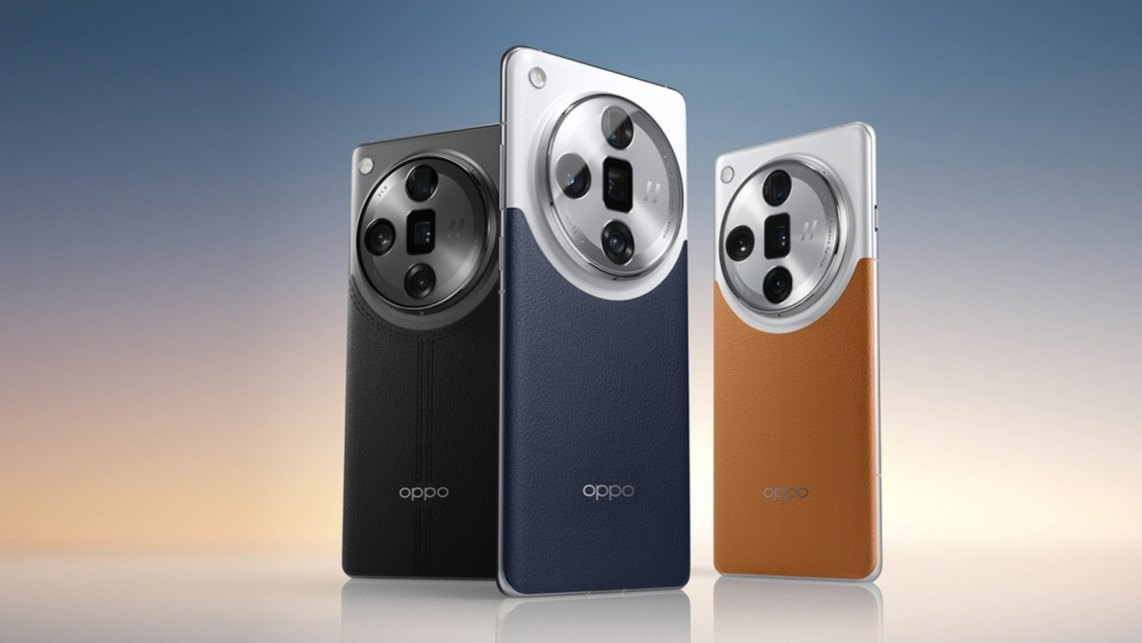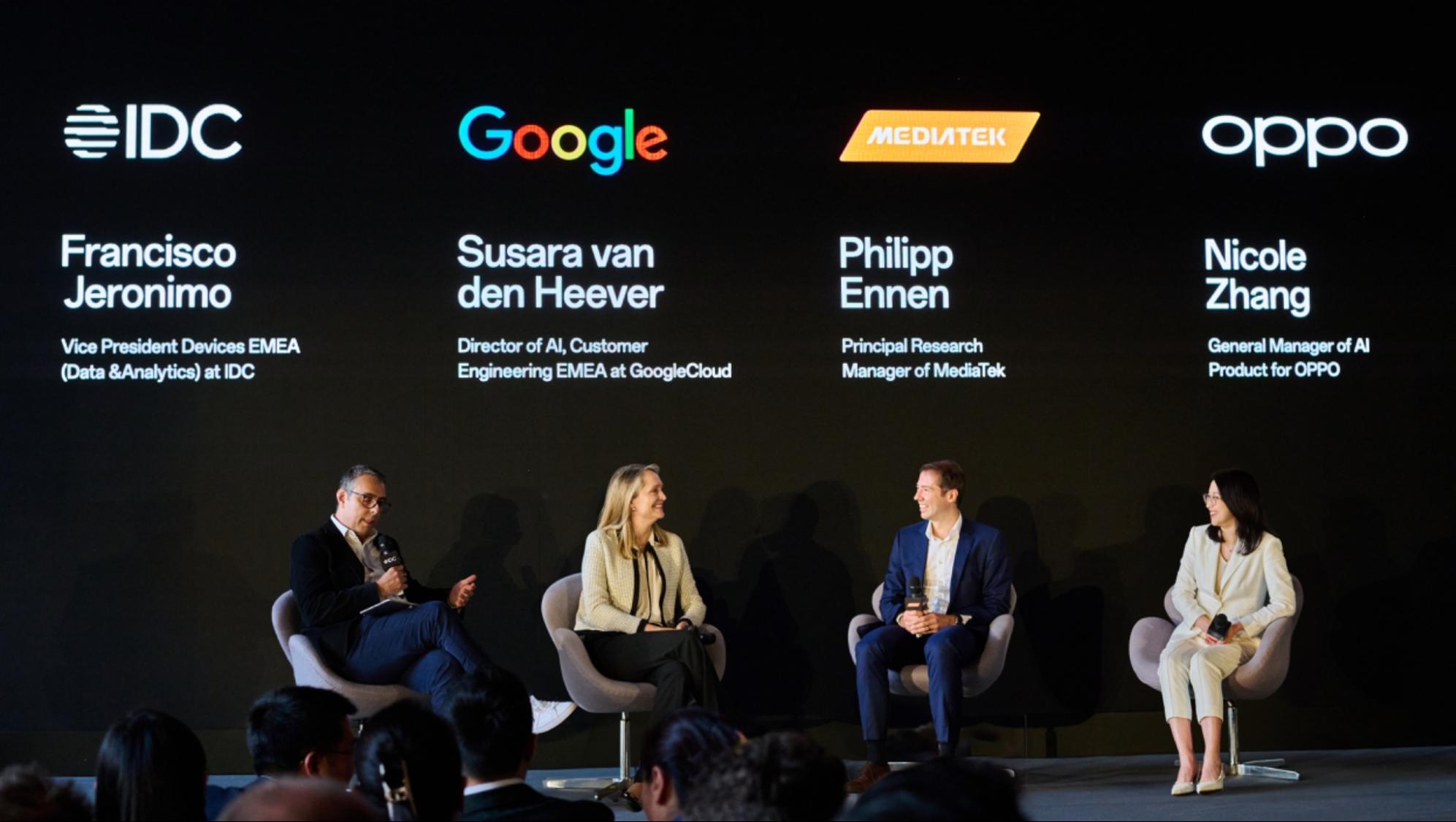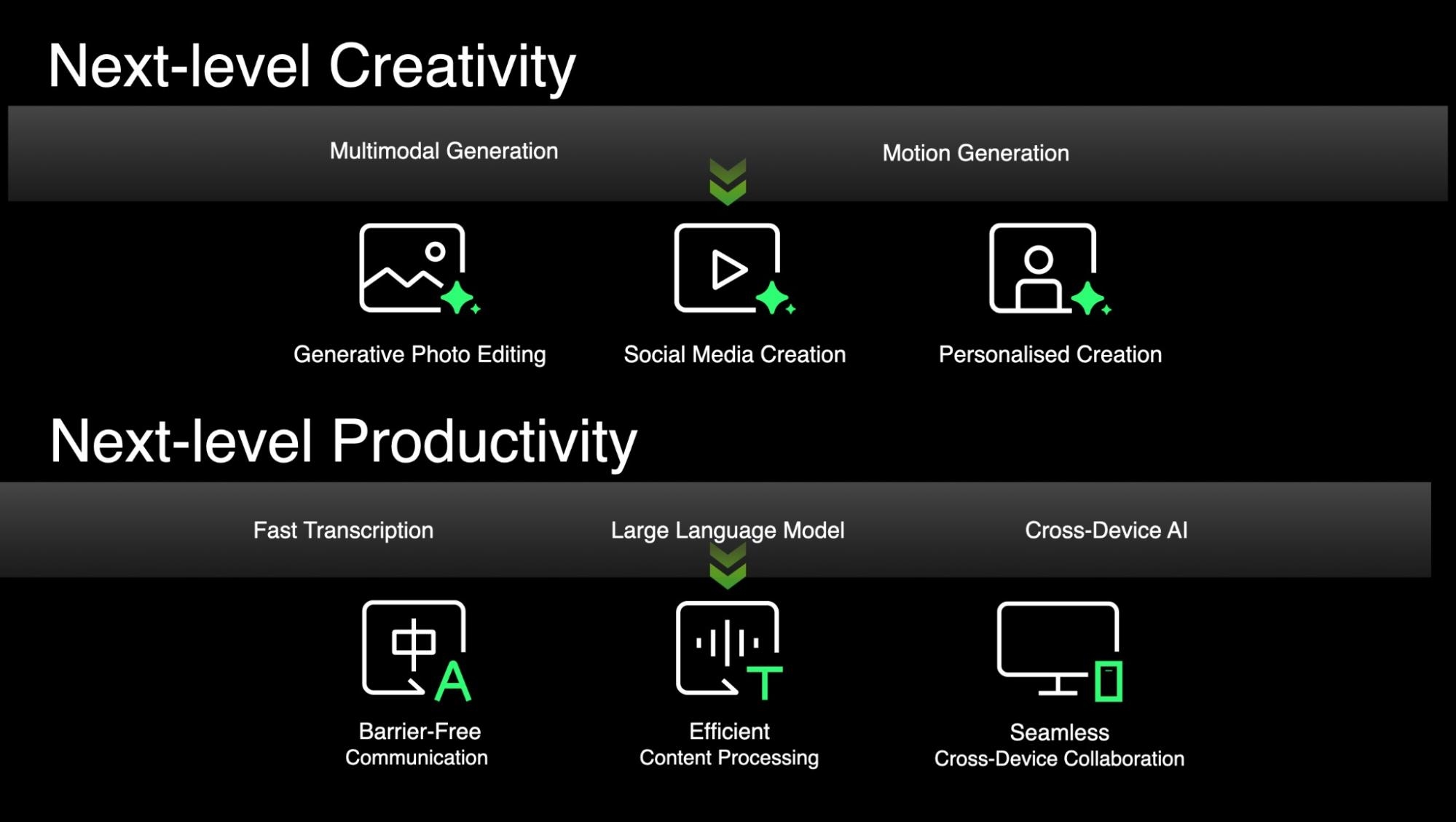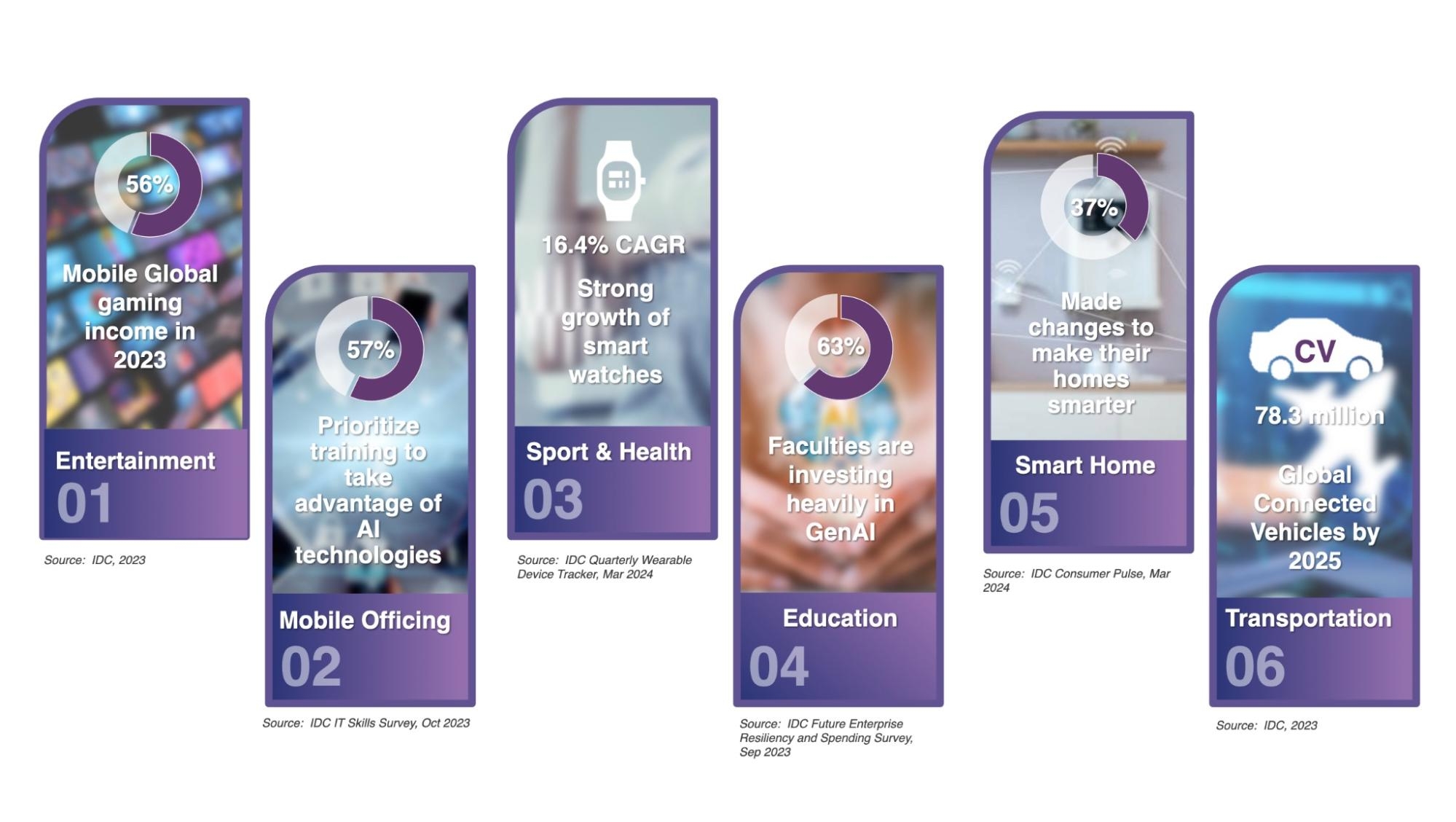
Smartphones have arguably been the most transformative new technology since the arrival of the internet, but another – perhaps even bigger – technological advance is coming, and it’s powered by AI.
If you’ve been following tech news or simply been a human on the internet, then you’re likely aware that AI features are being added to everything from apps to computers to – yes – smartphones. But this is just the beginning, as according to OPPO and its partners – including Google, MediaTek, and IDC – before long we’ll have true ‘AI Phones’.
So what do we mean by an AI Phone? Well, as explained at OPPO’s AI Strategy Briefing, AI Phones could infuse almost every aspect of our smartphone experience with generative AI (Gen AI), empowering users to enhance their creativity, productivity, and even everyday interactions and tasks.

We’re already seeing early examples of how AI can improve these experiences, such as with AI generated call and article summaries, AI-powered photo editing, and the AI Eraser on the OPPO Find X7 Ultra. In fact, arguably the likes of the OPPO Find X7 Ultra are already AI Phones, but there’s still so much more untapped AI potential.
Some of this potential will be delivered soon though, as OPPO is ambitiously incorporating generative AI technology across its smartphone product line, making AI phones accessible to everyone. By the end of the year, OPPO anticipates that approximately 50 million of its AI Phones will be in use worldwide, marking a significant step towards integrating AI more deeply into everyday technology.
Boosting productivity and creativity
When asked about the most commonly used features of generative AI, functionality related to productivity and creativity often comes up. This can include things like AI summaries, which were mentioned by Susara van den Heever, Director of AI, Customer Engineering EMEA at Google Cloud during a panel discussion: “AI summaries can really simplify everyone's life. I use it at work, for example, to summarize meetings. I use it in my private life, for example, I might get the summary of an article that my dad sent me or my brother sent me. ” van den Heever explained. “And so it's a concept that can really make us a lot more productive, save a lot of time, and just give us very precise insights in a very short period of time.”
Philipp Ennen, Principal Research Manager of MediaTek said: “I'm a passionate photographer. And so I remember a time, 10 years ago when you wanted to remove something from an image, it was lots of painting. And nowadays it's just like the AI Eraser feature, the person or whatever is just gone.”
Get daily insight, inspiration and deals in your inbox
Sign up for breaking news, reviews, opinion, top tech deals, and more.
The current industry consensus is that the initial functionalities unlocked by generative AI on smartphones will concentrate on these two areas. Van den Heever explained that Google is currently developing these sorts of features in collaboration with OPPO, saying: “When I think of the partnership that Google has announced with OPPO, it's a lot about partnering to bring more productivity and creativity to the world.”

Integrating into every aspect of your life
With their awesome sensing and computational powers, plus unbeatable convenience and widespread use, smartphones are the ideal devices to get a major AI upgrade. Indeed, AI Phones are about to take center stage in your digital world, delivering a smarter, more personalized, and downright cooler user experience.
During the briefing, Francisco Jeronimo, IDC VP for Data and Analytics at IDC EMEA, shared, "Under the empowerment of generative AI, smartphones will increasingly play pivotal roles in six key areas: entertainment, mobile officing, sports and health, education, smart home, and transportation."

Taking sports and health as an example, by injecting powerful analysis and intelligence into a variety of health products, AI Phones of the future will not only help monitor your fitness and health, but also act as personal coaches or doctors.
During a panel, Jeronimo explained that already with smartphones, patients can take pictures of problems and send them to their doctor without having to visit a practice, adding that “But with AI capabilities the phone will be able to better understand and provide some advice, not just to patients, but to help doctors as well.”
Bringing AI’s benefits to everyone
The shift from traditional smartphones to AI Phones represents a long-term evolution, set to continuously transform the mobile experience.
In the future, AI Phones will integrate intelligence with real-world sensory data, transforming interactions from simple taps and commands into dynamic dialogues with AI agents.
Nicole Zhang, General Manager of AI Product at OPPO added that these AI Agents could be embedded directly into a smartphone’s operating system, and that they would be designed to learn from and understand their users over time, gaining knowledge of our calendars, maps, contacts, preferences, and more. So in other words these AI Agents could become highly personalized assistants, that know you and how you use your phone well enough to deliver tailored help with your daily tasks, and they could even provide recommendations without you having to ask.
While we’re not yet seeing everything that AI Phones and AI Agents will enable, OPPO has been at the forefront of this shift, delving into AI Agents early on, and Nicole Zhang has outlined the focus on three core capabilities that empower these Agents:
- Knowledge, enabling the Agent to leverage knowledge graphs and search abilities to reduce hallucinations.
- Memory, allowing the Agent to store user profiles and personal data, providing a more personalized AI experience.
- Tools, granting the Agent the ability to leverage capabilities such as first-party apps, third-party services, code interpreters, and a variety of other tools.
What will this mean in practice? Well, for one thing the intelligent OS used by AI Agents could support multimodal interactions, allowing third-party services to be delivered more flexibly and without the need for users to manually interact with an app. For instance, an AI Agent integrated into the phone's OS could efficiently handle complex commands, such as "Book a Chinese restaurant with my friend next Tuesday at 7pm, and ensure it's no more than a 10-minute walk from here."
Multimodality in AI Phones not only enhances voice interactions but also sets the stage for major advancements in accessibility, making phones more inclusive than ever. Individuals with visual or physical impairments could control their phones almost entirely through voice commands, while those with hearing impairments could benefit from real-time transcription.
With the aid of AI Agents then, AI Phones are set to catalyze a technological revolution and an extensive reconstruction of the smartphone ecosystem, from hardware platforms to operating systems and beyond.
So in short, AI is poised to reinvent smartphones, and its impact could be even bigger than the transition from non-smart mobile phones to the handsets we all use today. It’s clear too that OPPO and its partners are working hard to deliver this AI Phone vision in the near future, and while our phones aren’t the only devices that will gain and benefit from AI, they are arguably among the best positioned to take advantage of AI’s capabilities.
